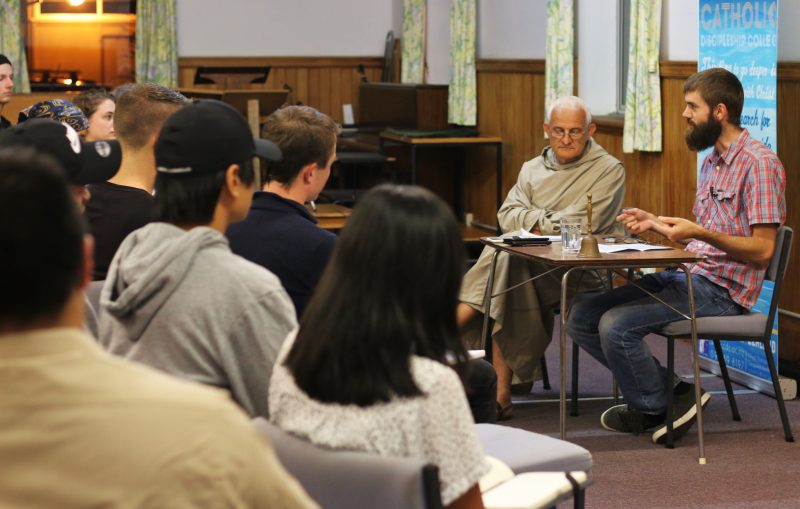The Matrix, a hugely popular 1999 movie, was the catalyst for an evening of philosophy at the Catholic Discipleship College, Auckland, on April 6.
The college, hosting about 40 guests, held an interactive open teaching entitled, “Is this real, or are we stuck in The Matrix?”
Inspired by the 1999 blockbuster, it opened up a more general discussion about truth and freedom.
Dr Cameron Surrey, CDC leader, gave an overview of The Matrix and the questions that it raised for us.
“The Matrix introduces a scenario in which the world we seem to encounter each day is only an illusion, a virtual reality, designed to keep us under the power of an army of ‘intelligent’ machines that have all but taken over the world. It leads us to question how, if at all, we can know that what we see, hear and touch is really there.”
Fr Dominique Faure, CDC chaplain, gave a philosophical analysis.
“The idea that the world we see is an illusion, this is nothing new in the history of philosophy. From ancient times it is there in the thought of Plato, as well as the Hindu philosophy, and we see it again in Descartes, the grandfather of modern philosophy,” he said.
“We will not prove by thought and logic that we are not in The Matrix. We need to have the spiritual experience of freely discovering the truth. Just as we only learn to walk by walking, so we can only know reality as such by engaging with it.”
This sparked a lively discussion. One questioner asked if we can speak of the “matrix” in relation to the plethora of errors that we find today concerning the human person.
“Of course,” replied Fr Faure, “we face so many slaveries linked to modern ideologies (materialism, hedonism, the worship of technology) and live in such a virtual culture, centred around pleasure and various cults of entertainment. All these cause us to be easily led and
even controlled by others.”
Another questioner made the point that, in our day, personal choice is often given priority over truth. “How do we respond, for example, to a man who insists that he is a woman?”
“In a situation where truth is regarded as purely subjective,” replied Fr Faure, “there can be no community because there are neither common references nor a sense of the common good. This is, unfortunately, what we see more and more in our world today. Such a culture will inevitably destroy itself.”
Mr Surrey added that we need to recover the distinction between loving and agreeing. “I can love you and accept your love even if we do not agree. This is so important, for it opens up the possibility that we might search for the truth together.”

Reader Interactions